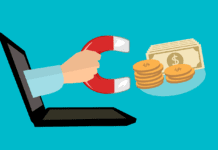For a certain sort of smartphone user, closing apps becomes almost automatic. You double-tap the home button on your iPhone or make the multitasking key on your Android, and you simply start swiping. You close all the apps you’ve been using. Days, weeks, months’ merit. Not only is there something deeply cathartic about it, but it feels like a cleansing, a reset. Best of all, with no apps operating, your battery’s in great shape! Right?
Right ?!
Wrong. In the last week or so, both Apple and Google have confirmed that closing your apps does absolutely nothing to improve your battery life. In reality, mentions Hiroshi Lockheimer, the VP of Engineering for Android, it might make things worse.
@pierce @mcwm @MarcusDPK @qz could very slightly worsen unless you and algorithms are ONE( you kill something, system wants it back etc)
Hiroshi Lockheimer (@ lockheimer) March 14, 2016
Really, that’s all you need to know. You can stop here. This isn’t even particularly uncover, truly; it’s just nice to hear the people who built the platforms confirm it. Here’s the takeaway, is again: Stop closing your apps, because it’s not doing you any good. But if you want to know why, it helps to have a basic understanding of how multitasking works.
On iOS, for example, there are five different governments an app can be in at any given time.( Android’s setup is similar enough that we don’t need to go over both .) Not Operating is obvious: You haven’t launched it, it’s not operating. Active is up on the screen and doing stuff. Inactive is a transitional phase, where it’s on the screen but not doing anything as you switch to something else. Background is when the app isn’t in front of your face but is working, freshening your emails or bringing in the latest fire tweets. Last, there’s Suspended, which is when an app is in the background and doing absolutely nothing. It simply sits in recollection like a bump on a log.
On both Android and iOS, algorithms operate recollection handling. They’ll close apps that need to be closed, typically ones that ought to have dormant for a while or are employing more power or recollection than they should. And they’re very good at to determine when you’re going to need data, or want a freshen, or open an app again. Apps that are already in recollection open quickly, rather than having to fully start again; it’s like waking your computer from sleep rather than rebooting it wholly. You’re far, far better off letting the system work for you rather than forcing it to re-open and re-start everything every time. Battery questions aside, it constructs your telephone slower and less coherent.
If you’re into saving battery, there are lots of things you can do. Turn down screen brightness. Turn off background freshen for apps. Use Low Power Mode in iOS, or enable Doze on Android. Turn off location sharing for apps that don’t need it( which is a good suggestion regardless ). Put the whole thing in Airplane Mode, if you’re feeling really crazy. But stop swiping your apps out of view, because it’s not helpful. If anything, it’s building it worse.
Read more: http :// www.wired.com/ 2016/03/ closing-apps-save-battery-makes-things-worse /~ ATAGEND



![[Video] How to get rid of bed bugs in Toronto](https://www.thehowtozone.com/wp-content/uploads/2019/10/maxresdefault-2-218x150.jpg)





![[Video] How to get rid of bed bugs in Toronto](https://www.thehowtozone.com/wp-content/uploads/2019/10/maxresdefault-2-100x70.jpg)


